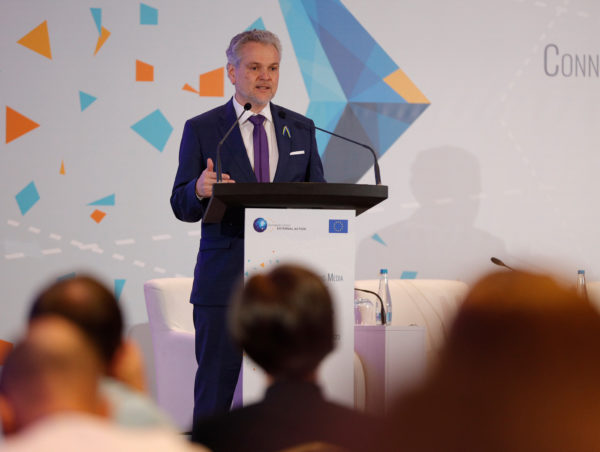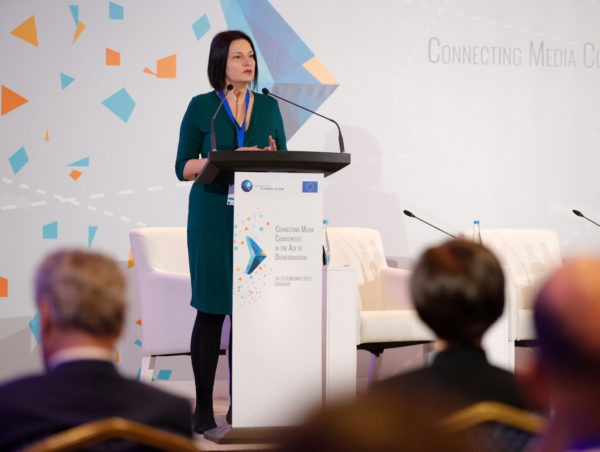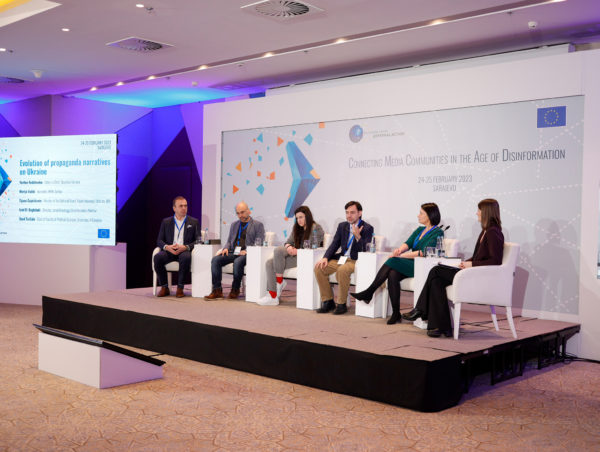Sarajevo hosts panel discussion on evolution of propaganda narratives on Ukraine
On the occasion of one year since the start of the Russia’s full-scale invasion on Ukraine, the European Union External Action Service (EEAS) and EU Office in Bosnia and Herzegovina, organized a panel discussion “Evolution of propaganda narratives on Ukraine”, on 24 February 2023 in Sarajevo. The discussion brought together panellists from the Western Balkans, Ukraine and the Middle East.
Ambassador Johann Sattler, Head of EU Delegation and EU Special Representative to BiH said: “This war is not just taking place on the battlefield. The war is also taking place in many other fields, including information space. The mechanisms to manipulate information that Russia has created, including in the years prior, have become a powerful instrument of war, used at a global level. Integrity, professional journalism and strong civil society are crucial during war times, when information manipulation takes place and disinformation spreads.”

Foto: Vanja Čerimagić
Tijana Cvjetićanin, Editor of the Raskrinkavanje fact-checking platform, presented analyses of disinformation narratives related to Russia’s invasion of Ukraine. “Raskrinkavanje identified six dominant disinformation narratives in the public space in BiH and in the region during 2022. Social networks and certain media played a key role in spreading these propaganda narratives. Shifting the blame for the war from Russia to Western countries is one of the most prevalent narratives. Closely related to this is the narrative of Ukraine as a state that poses a nuclear threat to Russia. The remaining narratives relate to the glorification of Russia as a military power, the denial of Ukraine’s statehood and the presentation of the current government as a ‘Nazi regime’, and the impact of sanctions on the economy. There is also a narrative in which Western media are accused of publishing untruths about Russian actions.”

Foto: Vanja Čerimagić
“We cannot fight disinformation in one specific place, you cannot do that only in Ukraine. Now it is a huge global problem and we need to work together to find it globally together”, said Yevhen Fedchenko, Editor in Chief of the fact-checking platform StopFake from Ukraine. “What Ukrainians are looking for at the end of this war is justice as well, not only victory. Justice implies that those who manufacture the system of disinformation would be also punished.”
Panellists who discussed the topic today were Yevhen Fedchenko, Editor in Chief of StopFake Ukraine, Marija Vučić, Journalist of KRIK, Tijana Cvjetićanin, Editor at Raskrinkavanje in BiH, Iyad El-Baghdadi, Director of Jamal Khashoggi Disinformation Monitor and Sead Turčalo, Dean of Faculty of Political Sciences in Sarajevo.

Foto: Vanja Čerimagić
The panel discussion is part of a wider EU activity „Connecting Media Communities in the Age of Disinformation“, that is taking place on 24th and 25th February in Sarajevo. It gathers journalists, fact-checkers, media professionals and academics from the Western Balkans, Eastern Partnership countries, Middle East and North Africa and beyond. The aim of the activity is to increase synergies across borders, as well as to map the needs of the media communities and support their work.